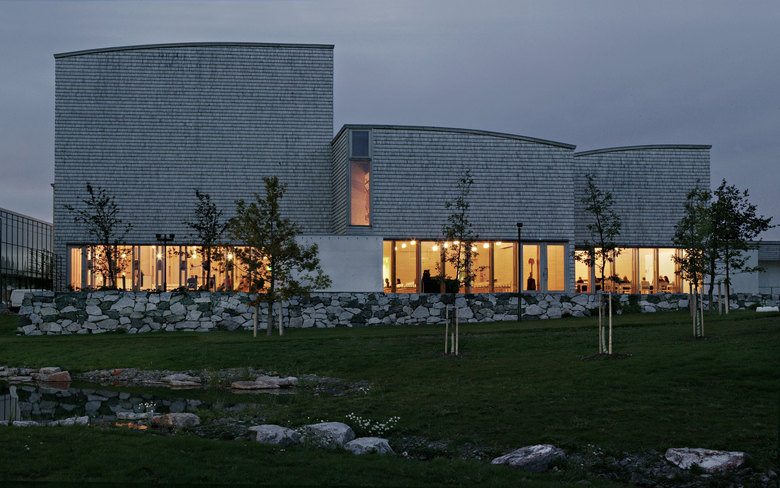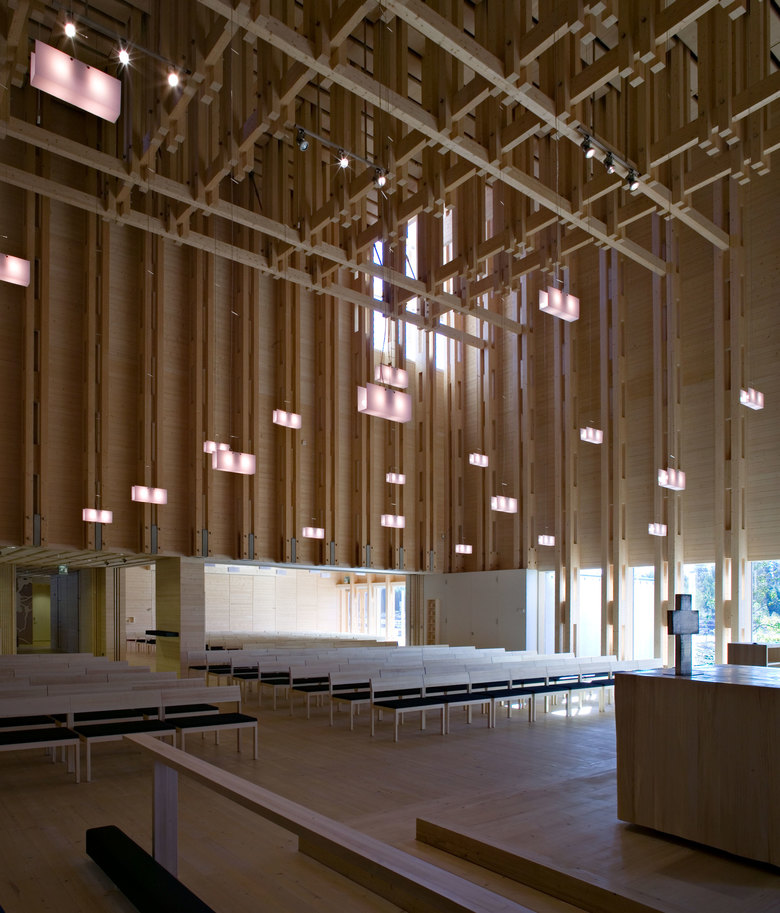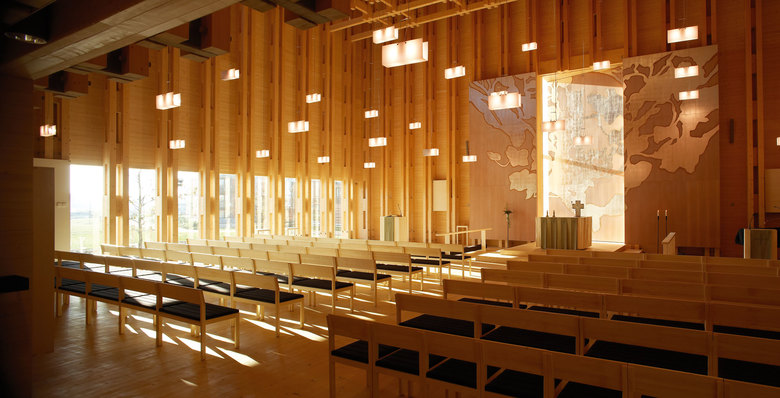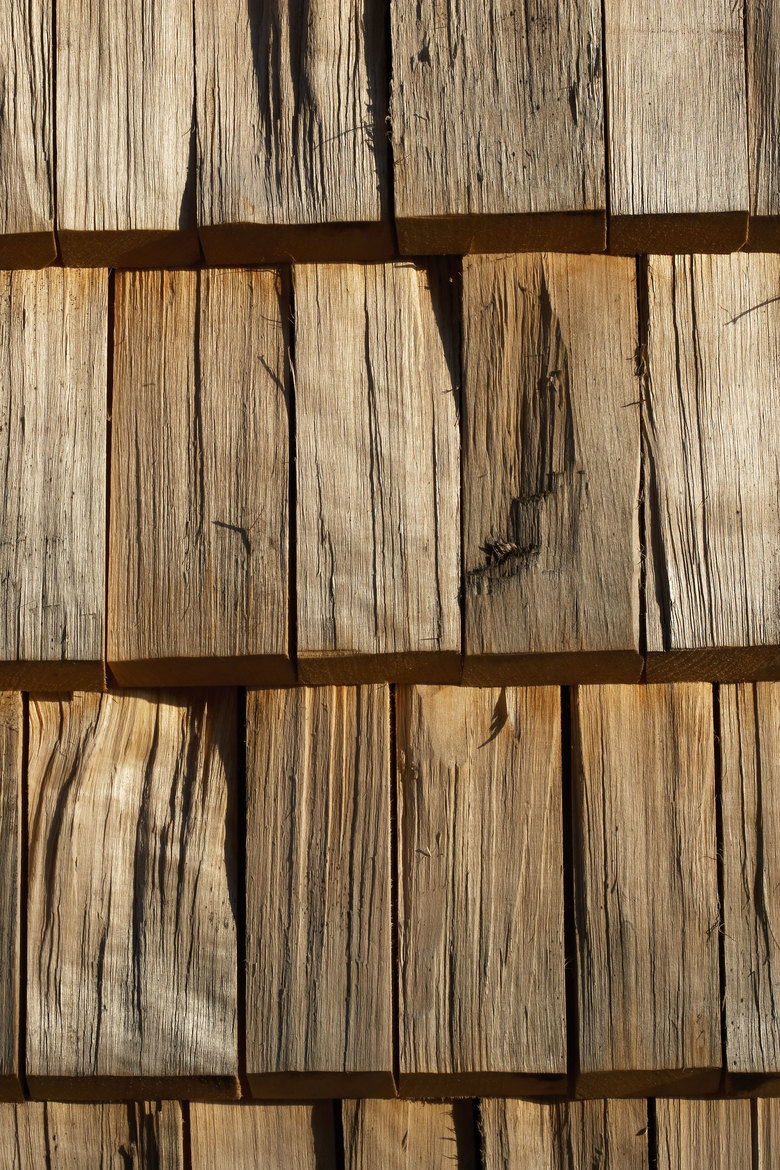Viikki Church
Helsinki, Finland
- arkkitehdit
- JKMM Architects
- Location
- Agronominkatu 5, 00780 Helsinki, Finland
- Year
- 2005
The church is located at the termination point of a narrowing landscape space, along the edge of a new square. The architecture evokes impressions of the Finnish forest. The eaves following the roof shapes reflect the forms of the treetops surrounding them. The approach to the church from the square takes a route past the bell tower and arrangements of vines. In the halls of the building the rising lines of the timber structures, resembling foliage, meet the systems of beams that define the space with light filtering through the structural members. The spaces, made of a single material, are hollowed out within the building like clearings in a forest.
The church design is based on the winning entry to an architectural competition for the Latokartano centre in Viikki, organised in 2000. The competition aimed to find suitable townscape and functional concepts for the civic and public service buildings of the area. The design brief also included proposals for the organisation of a public square, a park and commercial buildings on the competition site. In the chosen entry the public buildings form rectangular shapes that delineate the square and the park, their light-coloured brick surfaces differentiating them from the wooden church rising in their midst.
Already at the competition stage the contractee’s wish was to execute a modern timber church on the site. During the design phase we studied both traditional and new structural concepts. The building was designed with a view to achieving the architectonic goals reasonably and economically using prefabrication. The prefabricated components were joined seamlessly into one architectonic entity.
The materials used for the surfaces are durable and easy to repair and maintain during the course of time. The facades are clad with aspen, the surfaces of the congregation spaces lined with machine-split shingles, and the recreational rooms with horizontal boarding. Vertical slats were used for the bell tower. The untreated facades will gradually take on a grey patina. Radially sawn spruce has been used as a wall lining and flooring material in the congregation spaces. The objective of this solution was to minimise moisture movement of the timber, to achieve a uniform appearance, and to improve the durability of the floor. The spruce surfaces have been washed with lye. They were easy to clean during construction and to renovate in use. All building services were integrated into the ceiling construction and, the form-pressed, veneered panels also function as acoustic elements.
The commission included unique furnishing designs specifically for this interior. The double chairs for the church were designed to create the impression of long church pews. With their light colour, the aspen furnishings stand out well against the spruce surfaces. The texture of the split wood surfaces of the altar and the font highlights their important role. The altar triptych gives the chancel a serene atmosphere Artist Antti Tanttu’s work “Elämän Puu” (The Tree of Life) evokes impressions of an old mirror as light falls on its surface, changing the hues of the silver leaf surface. In the same way the church space, too, attempts to describe something that is beyond words.
Related Projects
Magazine
-
Winners of the 5th Simon Architecture Prize
1 week ago
-
2024, The Year in …
1 week ago
-
Raising the (White) Bar
1 week ago
-
Architects Building Laws
1 week ago






